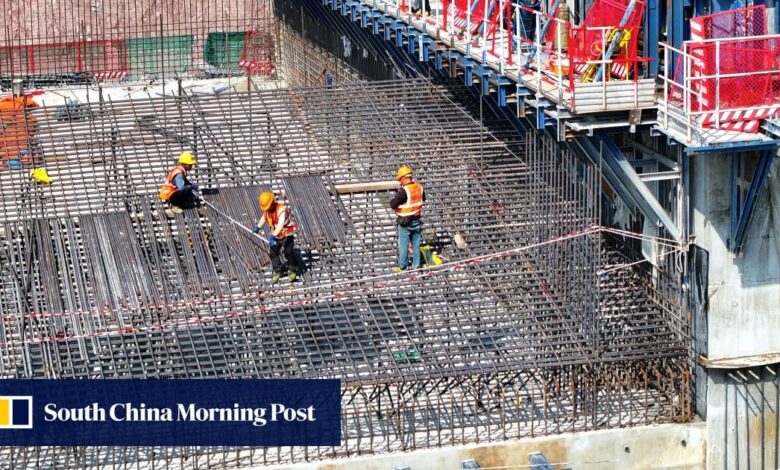China to discuss advancing 2024 bond quota as local authorities struggle for liquidity

Amid efforts to tackle local government debt and stressed regional banks as financial stability has jumped high on Beijing’s agenda, China’s lawmakers will meet later this week to discuss front-loading its 2024 bond quota.
Bonds have become a major source of provincial and municipal fundraising as revenues from land sales have plunged due to a crisis in the property sector, while tax revenues have also fallen amid the post-Covid economic recovery.
The annual local bond quota and debt cap will officially be released during the National People’s Congress in March, but the Standing Committee of the national legislature will meet on Friday to discuss a bill to approve front-loading the 2024 allocation.
“Policymakers need to find a new bond quota for the fourth quarter to avoid a cliff, given that more than 90 per cent of this year’s local government special bond quota has been used,” said Larry Hu, chief China economist at Macquarie Capital.
It highlights rising risks at some Chinese small and medium-sized regional banks
As of last week, 4.18 trillion yuan (US$573 billion) of local government bonds have been issued this year, including 84.5 per cent of the quota for so-called special-purpose bonds mainly used to fund infrastructure, according to Zhongtai Securities.
International ratings agency Fitch Ratings on Monday warned that China’s local authorities are facing increasing challenges in using regional resources to contain financial risks.
At the end of September, Liaoning Asset Management agreed to purchase assets, including certain loans and investments, for 176 billion yuan (US$24 billion) from regional lender Shengjing Bank, which found itself exposed to struggling developer Evergrande.
“It highlights rising risks at some Chinese small and medium-sized regional banks and the complexity local authorities face in resolving such risks, especially where financial resources are more limited,” Fitch said.
What’s happening with China’s property slowdown, and are there systemic risks?
What’s happening with China’s property slowdown, and are there systemic risks?
China’s local authorities are struggling under rising debt pressure, with 38.7 trillion yuan of on-balance-sheet-debt, plus so-called hidden debt often associated with local government financing vehicles.
Last week, Beijing allowed 13 provincial authorities to issue 536.3 billion yuan (US$73.5 billion) worth of special refinancing bonds to service outstanding liabilities.
Serena Zhou, a senior economist with Japanese bank Mizuho, believes China’s central bank is likely to cut commercial banks’ reserve requirement ratio by 25 basis point to replenish bank liquidity to fund the bond purchases.
China’s indebted local governments spend billions to bail out small banks
China’s indebted local governments spend billions to bail out small banks
China’s top legislature decided at the end of 2018 to authorise China’s cabinet to issue the following year’s bond in advance, although the first batch is capped at 60 per cent of total annual quota.
The change was made to fund local infrastructure investment and stabilise economic growth.
In December 2021, the Ministry of Finance approved front-loading 1.46 trillion yuan of the special-purpose bond quota for 2022.
In October last year, 2.19 trillion yuan of the quota for 2022 was also issued in advance, reaching the upper level of the limit set in 2018.





